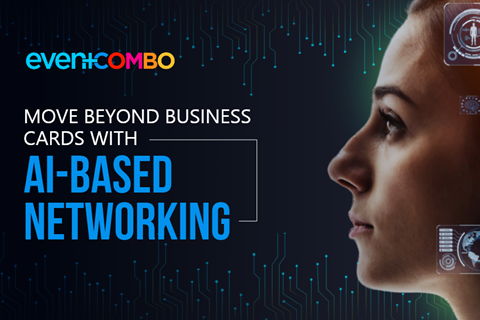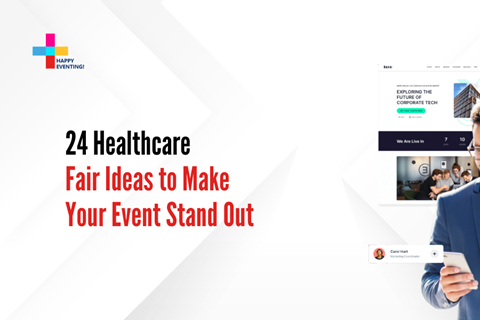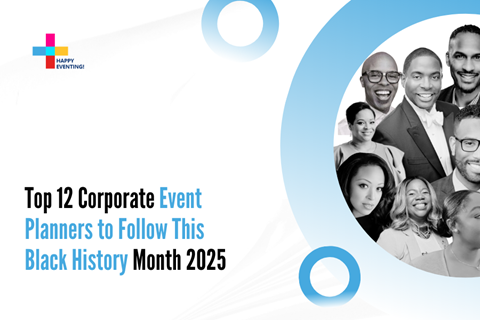

So, you’ve got your event venue, decided on a date and time, invited people, and now you wait. NO! In fact, you must do the opposite. Once you plan an event, you and your team must spend time advertising and getting people interested leading up to the event. It’s one thing to invite people, but the real trick is getting people excited enough to attend your event and, if possible, bring their friends.
Event hype can be created in a number of ways. But it all begins with you being crystal clear about your audience’s needs and what they can achieve by attending your event. Today, social media has emerged as a fantastic source of building excitement about an event. Additionally, there are many other innovative ways to ensure people far and wide are interested in your event. Let's explore the top ones here.
1. Create Target Audience Persona
Building event hype requires a clear understanding of your audience's specific needs. Familiarizing yourself with their interests, behavior, age group, lifestyle, and shared beliefs is crucial for developing an effective promotional plan. Without this knowledge, your efforts may amount to trial and error.
Conduct thorough research into the unique interests and challenges of your target audience. Engage with them through polls, articles, and discussion threads across various channels to gather insights. Use this information to create detailed audience personas, which will enable you to craft a message or narrative that deeply resonates with them and sparks excitement for attending your event.
2. Use Social Media
You can build significant pre-event excitement using social media. Here are a few tips for developing a comprehensive strategy for promoting and generating buzz around your event.
3. Use Creative Hashtags
People are constantly on their phones and it’s the fastest way to receive a response. A quick way to let people discover about your event is by creating a hashtag. Unique and creative hashtags are a fantastic way to connect with your potential guests organically. It helps people find you and others who are interested in your event.
Your event hashtag should be relevant to your event's name, objective, or theme. Aim to create concise hashtags that are easy for people to remember. Once you've come up with some options, conduct a search on various social media platforms to ensure they haven't been used before. It's important that your hashtags are completely unique. Use the finalized hashtags consistently across all your event related social media posts.
4. Create an Event Website
Another way to help people learn about your upcoming event is by creating a dedicated event website. Make sure your website is always up to date with current information and that you are staying relevant and keeping your audience on their toes with new surprises.
Include innovative features on your event website like a countdown clock that tracks the days, hours, minutes, and seconds until your show begins. Alternatively, consider sharing captivating trailers from your past successful events to keep your audience engaged. Ensure to include the time and date of the event clearly on the page. In addition, your social media links will enable visitors to share event information easily.
5. Leverage Giveaways and Contests
Remember: people love free things! Consumers also love competition, and a chance to win anything for doing something that won’t take too much time out of their day. Contests and giveaways can be arranged across various platforms to suit your budget. Regardless of the approach, the outcome often yields significant excitement. Offering free gifts and rewards tends to capture people's interest effortlessly. Additionally, contests that encourage participants to tag their friends can substantially boost brand awareness. However, it's crucial to reward participants with items or experiences relevant to your event or brand. Furthermore, establish clear guidelines based on the value of the prize. For larger rewards like branded merchandise, you may consider requesting more from your followers in return.
To build anticipation, organize a contest leading up to your event, offering a reward if someone completes the task. Announce the winner at your event to create excitement and suspense. Such a gamification tactic also generates valuable leads.
6. Make Communication Impactful
Customize your marketing communications and reach out to people directly through emails. Creating event hype can begin by reviewing your email list and identifying potential standout attendees. Since these individuals have opted into your email list, they're likely to be receptive to news about your event. Inform them about the event schedule, featured guest speakers, and venue details.
Some of the most effective strategies for generating excitement for an event through email marketing include sending countdown emails with teaser videos, sending personalized invitations, offering early bird discounts, and sharing testimonials.
7. Create a Narrative Through Blogs and Newsletters
Content marketing activities are highly effective for generating anticipation ahead of an event. Consider crafting newsletters, company blogs, or guest blogs that delve into topics relevant to your event. Here are some suggestions:
By producing and distributing engaging content, you can disseminate information about your event across diverse channels. This ensures that your potential attendees can discover details about your event even beyond your event website.
8. Send Personalized Text Messages
Sending personalized text messages is an excellent way to generate excitement for your event. You can provide your attendees with updates, schedules, and info about exclusive offers. Utilize an SMS marketing platform to automate reminders. You can also schedule a series of messages to be sent out in the days or weeks leading up to the event. Here are a few things that your potential attendees may appreciate:
9. Advertise with a Press Release
Build public anticipation and trust with a carefully crafted press release. This strategy is particularly effective if you have a product launch event. The optimal timing for sending out your main press release is 6-8 weeks before the event, followed by a reminder press release 1-2 weeks prior. Additionally, you can enhance your PR strategy by optimizing it for search engines. This involves incorporating SEO strategies like integrating industry-related keywords and including internal links to relevant content.
Building excitement and anticipation for your event yields numerous benefits. When executed effectively, it drives up registration and ticket sales while boosting brand visibility. Customize the aforementioned strategies to align with your event's objectives, and you'll surely witness impressive outcomes. Your attendees will be eager and prepared to immerse themselves in everything you have in store for them.
Are you looking to level up your event marketing strategy? Explore Eventcombo's comprehensive tech stack to streamline the process. https://bit.ly/3R9bkuP

Networking is one of the most valuable ways to discover boundless opportunities and for 77.7% of business professionals , in-person conferences open a greater scope to make rewarding connections.

When planning a healthcare fair, the goal goes beyond booking a venue and sending out invites. You’re creating an event that brings together healthcare professionals, researchers, and exhibitors, all seeking value and...

Diversity and inclusion are at the heart of the events industry, where planners are focused on creating experiences that bring together people from all walks of life.